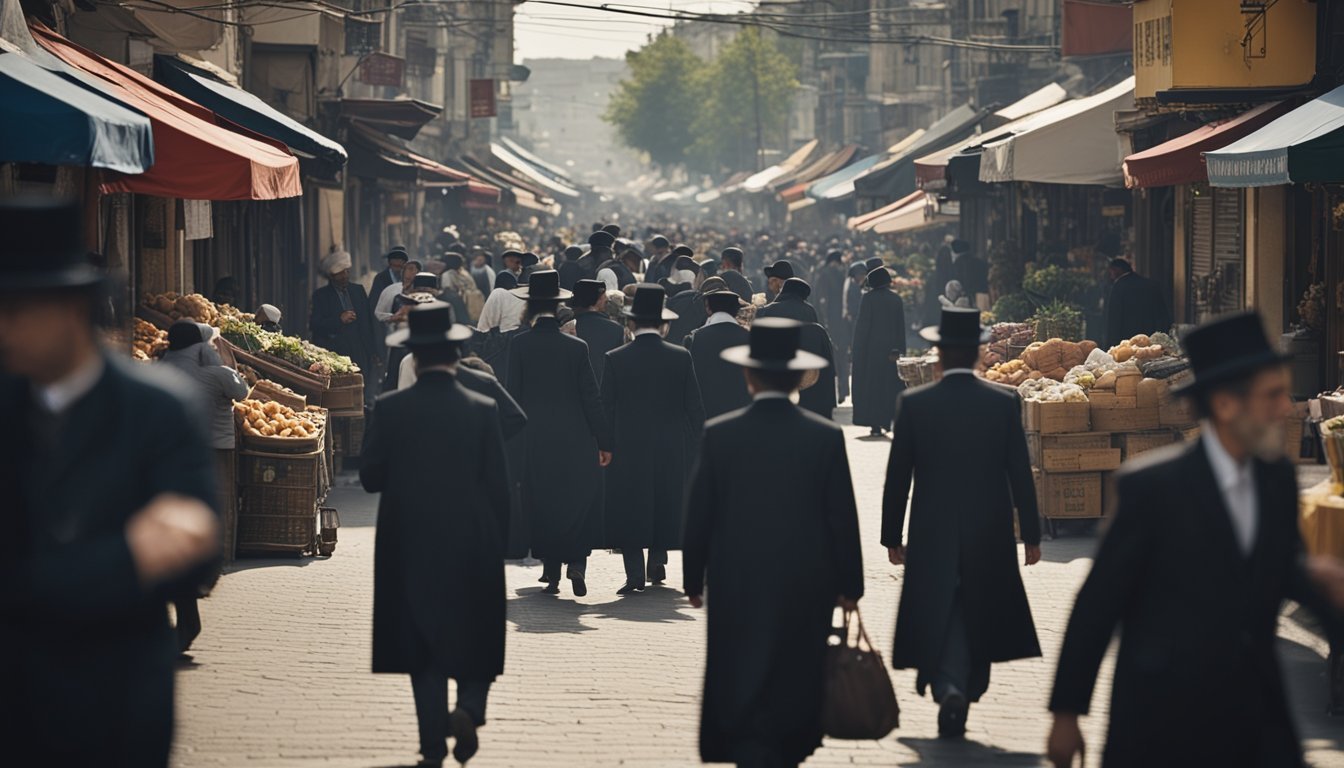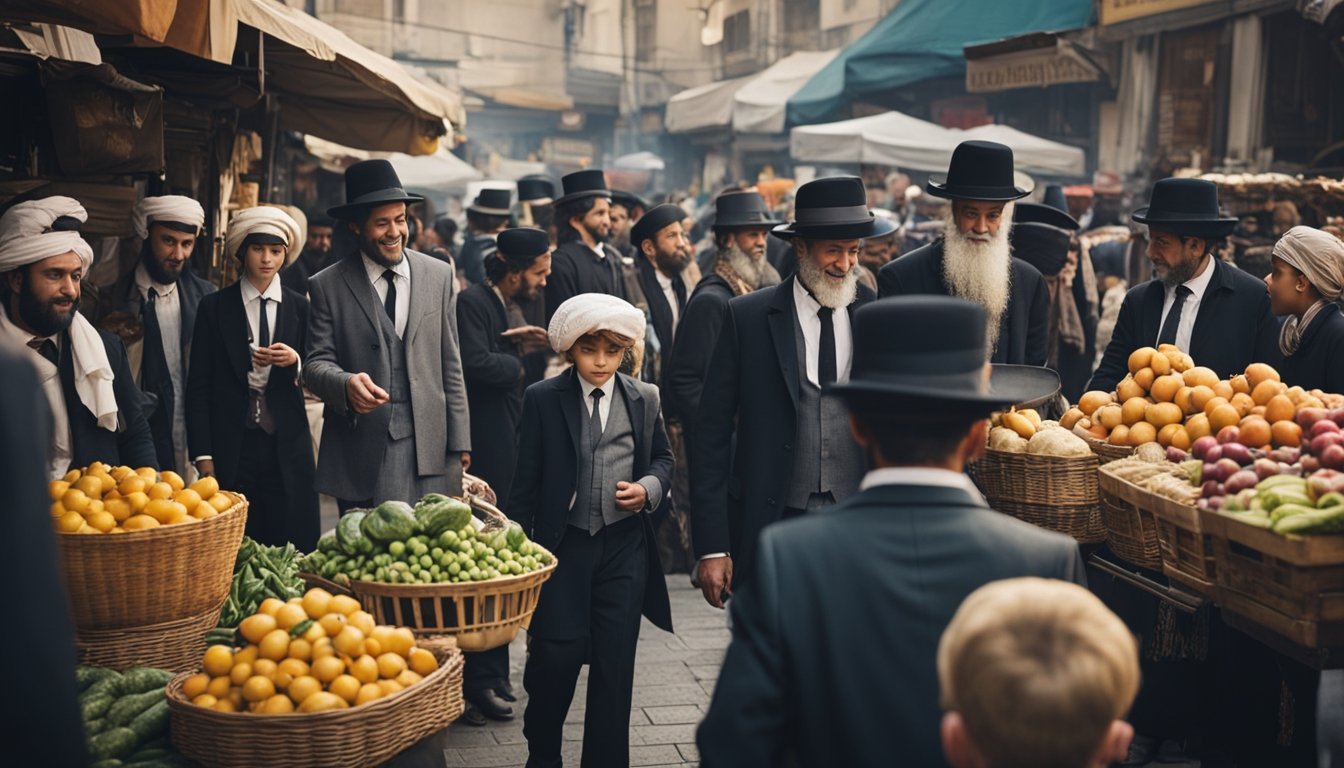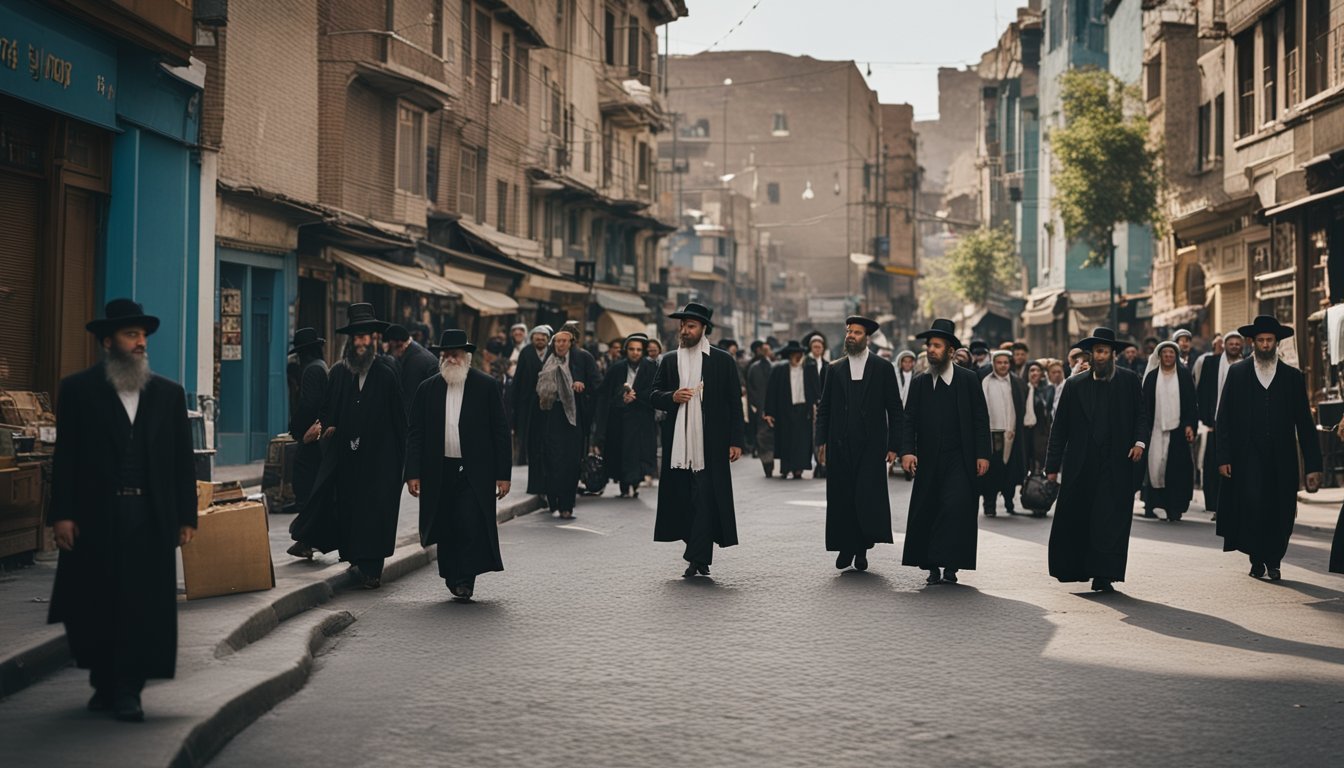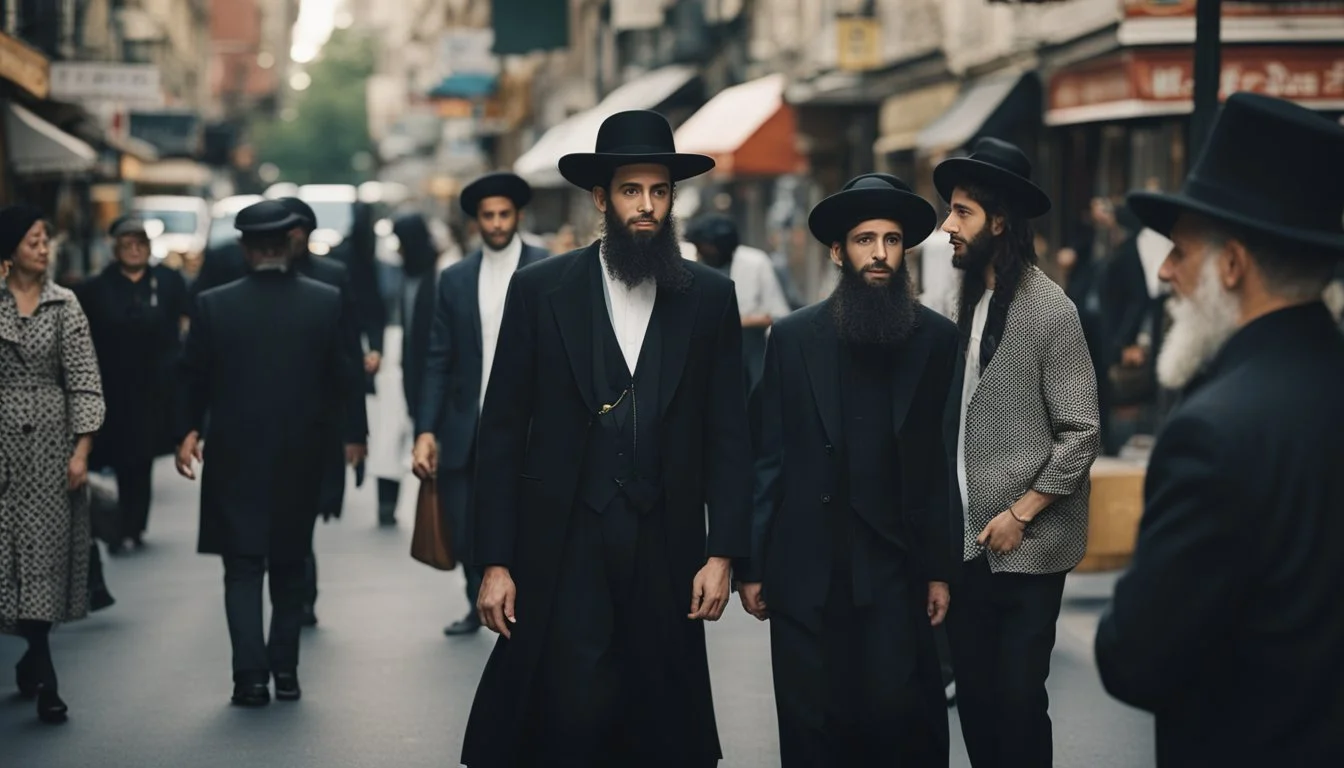Joshua Z. Weinstein: Capturing the Essence of Hasidic Life in Film
Joshua Z. Weinstein has made a significant impact in the film industry with his compelling portrayals of Hasidic Jewish life. His narrative feature debut, Menashe, offers an authentic and intimate glimpse into Brooklyn's Hasidic community, focusing on a widowed father struggling to reclaim custody of his son. This poignant depiction is both a heartfelt narrative and a rare cinematic journey into an insular world traditionally hidden from the broader public.
Weinstein's approach to filmmaking is rooted in authenticity and respect for the culture he depicts. By choosing to film Menashe entirely in Yiddish, he broke linguistic barriers and brought a greater sense of realism to his work. The film's success stems from Weinstein’s meticulous attention to detail and his ability to capture the nuanced daily lives, faith, and traditions of the Hasidic people.
The story of Menashe resonates deeply, not just for its universal themes of fatherhood and loss, but also for its honest and respectful portrayal of a community often misunderstood. The collaboration with non-professional actors from the community further enriches the film, showcasing Weinstein's commitment to capturing genuine experiences. His work continues to shed light on the complexities and beauty of Hasidic life, inviting audiences to engage with this unique cultural tapestry.
Joshua Z. Weinstein: Biography
Joshua Z. Weinstein is an independent filmmaker from New York City, renowned for his authentic portrayal of Hasidic Jewish life and intimate human moments. His journey in the film industry encompasses a variety of genres, from documentaries to narrative features.
Early Life and Education
Joshua Z. Weinstein was born and raised in the United States. His interest in film developed early, leading him to pursue formal education in the field.
He attended the prestigious Boston University, where he studied film and honed his skills in visual storytelling.
During his time at the university, Weinstein experimented with different forms of media, laying the groundwork for his future projects.
Career Beginnings
Weinstein's career began with a focus on documentaries. His first notable work, Flying on One Engine (2008), gained attention for its compelling narrative and unique subject matter.
In 2012, he directed Drivers Wanted, another documentary that showcased his ability to capture everyday life with authenticity and depth.
These early projects solidified Weinstein's reputation as a talented documentarian, setting the stage for his later success in feature films.
Rise to Prominence
Joshua Z. Weinstein gained widespread recognition with his narrative feature debut, Menashe, released by A24 in 2017.
Shot entirely in Yiddish, Menashe offered an unprecedented look into the Hasidic Jewish community, earning critical acclaim and multiple award nominations, including a Gotham Award for "Breakthrough Director" and an Independent Spirit Award for "Best First Feature."
Weinstein's work has been featured in major film festivals such as Sundance and Berlin, confirming his status as a prominent figure in independent filmmaking.
Exploration of Hasidic Life
Joshua Z. Weinstein's work delves deeply into the traditions, daily existence, and cultural nuances of the Hasidic Jewish community. His films serve as a window into a world that is often viewed from the outside, offering a rare and insightful glimpse.
Ethnographic Approach
Weinstein takes an ethnographic approach, immersing himself in the community he seeks to portray. His commitment to authenticity is evident in his choice to shoot the film "Menashe" entirely in Yiddish, a decision that provides a genuine reflection of life in Hasidic Brooklyn. This approach helps in capturing the intricacies and subtleties of daily rituals, religious practices, and community interactions.
Cinematic Style
His cinematic style is defined by a documentary-like realism. As a seasoned documentary cinematographer, Weinstein employs naturalistic lighting, handheld cameras, and non-professional actors from within the community to enhance the sense of realism. This technique draws viewers into the emotional and physical spaces of his characters, allowing for a more intimate and engaging viewing experience.
Notable Works
Joshua Z. Weinstein is best known for his film "Menashe," a narrative feature that tells the story of a widowed Hasidic man striving to regain custody of his son. The movie stands out for its rare, deeply personal exploration of the Hasidic way of life in Brooklyn. By focusing on individual struggles within the constraints of communal and religious expectations, Weinstein offers a poignant portrayal that resonates broadly.
Influence and Contributions
Joshua Z. Weinstein's work offers profound insights into Hasidic life and has made significant impacts on both the filmmaking landscape and cultural understanding.
Influence on Filmmaking
Weinstein uniquely blends documentary realism with narrative storytelling. His film Menashe, shot entirely in Yiddish, stands as a pioneering work. By using non-professional actors, including real Hasidic Jews, Weinstein provides audiences with authentic portrayals of this insular community.
His approach breaks new ground in indie filmmaking, emphasizing cultural specificity over broad appeal. This commitment to authenticity has set a new standard in the industry, inspiring other filmmakers to explore similar immersive techniques.
Weinstein's dedication to detail and cultural accuracy has not only won critical acclaim but also expanded the scope and potential of independent cinema.
Contributions to Cultural Understanding
Weinstein's films demystify the Hasidic Jewish community, offering viewers a rare window into its daily life and struggles. By highlighting the complexities faced by individuals within these communities, such as in Menashe, he fosters empathy and awareness.
His work serves as an educational tool, dismantling stereotypes and providing a more nuanced view of Orthodox Jewish life. The choice to film in Yiddish adds another layer of cultural fidelity, making the stories more relatable to those within the community and illuminating for those outside of it.
Through his storytelling, Weinstein bridges cultural gaps, bringing underrepresented narratives to the forefront of cinematic discourse.
Critical Reception
"Menashe" has garnered significant attention from scholars and the general public. The film’s depiction of Hasidic life in Brooklyn has been appreciated for its authenticity and emotional depth.
Academic Perspectives
Academics have praised "Menashe" for its nuanced portrayal of Hasidic culture. The use of Yiddish throughout the film adds a layer of authenticity rarely seen in mainstream cinema. Scholars have noted director Joshua Z. Weinstein’s meticulous attention to detail, highlighting the film’s documentary-like realism.
Experts in religious and cultural studies commend the film for shedding light on the often misunderstood Hasidic community. Its ability to humanize the struggles within this insular society has sparked numerous academic discussions and analyses.
Public and Community Response
Public response to "Menashe" has been overwhelmingly positive. Audiences have connected deeply with the protagonist's emotional journey, finding the story both relatable and enlightening. Many viewers appreciate the film's respectful and honest representation of Hasidic life, which offers a rare glimpse into this world.
The Hasidic community itself has shown varying reactions. While some members appreciate the film's respectful depiction, others remain cautious about its impact on perceptions of their traditions. Despite these mixed feelings, the film has undeniably started important conversations around faith, family, and cultural identity.
Current Projects
Joshua Z. Weinstein continues to explore his fascination with insular communities through ongoing productions and new thematic explorations. His work remains a poignant investigation into unique, often overlooked lifestyles.
Ongoing Productions
Weinstein is currently working on a follow-up to his critically acclaimed film Menashe. This new project also centers on the Hasidic community in Brooklyn, further capturing the nuanced interplay between tradition and modernity.
Production involves extensive on-the-ground shooting in Borough Park. Weinstein employs a documentary-style approach, maintaining a high level of authenticity. The film is again shot in Yiddish, ensuring cultural and linguistic integrity.
Innovative filming techniques are being used to provide a more intimate look at community rituals and day-to-day life.
New Themes and Subjects
In addition to his focus on the Hasidic community, Weinstein is branching out into stories around immigrant experiences in America. He is currently in pre-production on a documentary that explores the challenges faced by undocumented workers.
This project involves collaborations with immigrant advocacy groups and aims to shed light on various labor rights issues.
Weinstein's new work also examines the complexity of cultural assimilation and the loss of heritage. His commitment to authentic representation remains evident as he works closely with community consultants and cultural advisors.
By expanding his thematic scope, Weinstein reinforces his dedication to telling deeply personal, societally relevant stories.
Public Engagement
Joshua Z. Weinstein's film, Menashe, has sparked significant public interest due to its unique portrayal of Hasidic life. This indie drama, set entirely within Brooklyn's Hasidic community, offers a rare insight that has captivated audiences.
Public showings at various film festivals, including the Sundance Film Festival, have attracted a diverse array of viewers. The film’s authenticity and poignant storytelling have been key highlights.
Audience Feedback
Viewers have praised the film’s naturalistic style and emotional depth.
Critics have lauded Weinstein's commitment to cultural accuracy, as the film is performed entirely in Yiddish.
Social Media Response
The film has generated considerable buzz on social media platforms:
Twitter: Numerous tweets discuss Menashe’s touching narrative.
Instagram: Users frequently share stills and reviews.
Interviews and Discussions
Weinstein has participated in interviews and panel discussions, portraying his deep understanding of the Hasidic community. These interactions have provided audiences with:
Insights into the challenges of filming within a traditionally insular community.
Appreciation for the meticulous efforts to ensure cultural fidelity.
Film’s Impact
Menashe has had a noticeable impact on the representation of Orthodox Jewish communities in cinema. By highlighting the struggles and humanity of its characters, Weinstein's work has broadened perspectives and fostered greater understanding.
Educational Outreach
The film is also utilized in academic settings to:
Explore themes of identity, tradition, and modernity.
Engage students in discussions about cultural representation in media.
Joshua Z. Weinstein continues to engage with the public through his ongoing projects and participation in film-related events, making significant contributions to the cinematic landscape.






